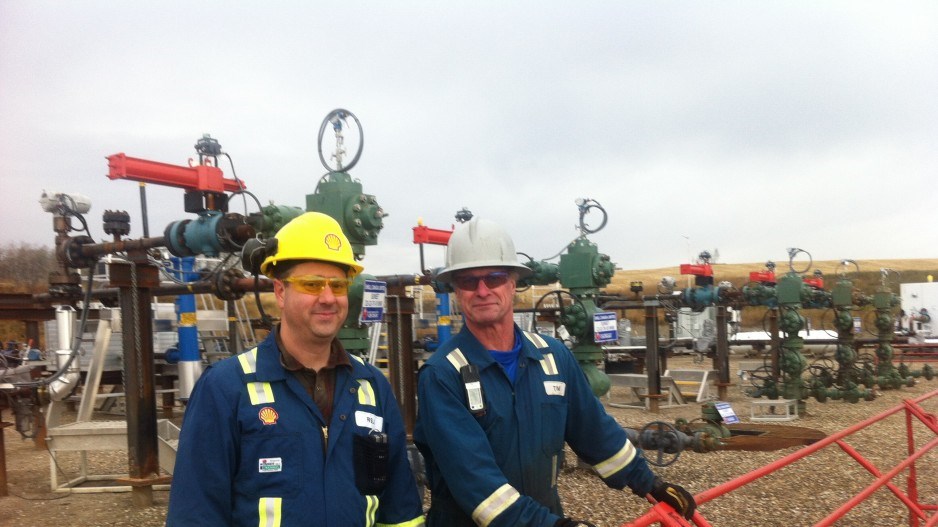B.C.’s new clean growth plan was not even officially announced yet last week, and it was already being deemed inadequate.
In a letter to Premier John Horgan and B.C. Environment Minister George Heyman, 40 scientists and academics last week called on the B.C. government to revise its emissions reductions targets – to 50% of 2007 levels by 2030, from 40%.
Given that B.C.’s emissions have fallen only about 3% since 2007 – the year before a new carbon tax came into effect – critics are questioning whether B.C. can hit a 40% target in just 12 years, let alone 50%.
“You certainly don’t build LNG [liquefied natural gas] plants and you certainly don’t build pipelines,” said Lynne Quarmby, a molecular biologist at Simon Fraser University – one of the 40 scientists and academics who signed the letter.
“It would absolutely require major changes. Nobody’s denying that.”
She said those changes would have to include widespread reduction of consumption and more government investment in public transit and renewable energy.
In addition to calling for a revised emissions reduction target, the 40 signatories want all industrial projects to be subject to “a climate test” in environmental assessments.
B.C.’s per capita emissions are already among the lowest in Canada, thanks largely to hydroelectric power. Its one Achilles heel, from a greenhouse gas (GHG) perspective, is its oil and gas sector.
David Austin, a lawyer specializing in energy for Stirling LLP, said focusing on the LNG industry as the biggest climate change challenge misses an important point.
Even without an LNG industry, the oil and gas sector in B.C. already accounts for 22% of B.C.’s total emissions, so electrification of the gas fields needs to be a big part of the new clean growth plan, Austin said – with or without an LNG industry.
He pointed to ConocoPhillips (NYSE:COP) to illustrate his point. The company has recently increased its activity in the Montney formation in northeastern B.C. and now holds 143,500 net acres of land there.
“It’s got nothing to do with LNG,” Austin said. “Everybody keeps forgetting that there’s emissions coming from the gas fields for gas production that’s got absolutely nothing to do with LNG.
“Everybody keeps thinking that it’s the LNG industry that’s driving the increase in GHG emissions in the gas fields. No, it’s not. It’s the fact that the Montney liquids-rich formation is a very inexpensive source of gas and liquids.”
Electrification of the industry, and tighter regulations on methane, could take a sizable chunk of the industry’s emissions.
That would be good for independent power producers, because it might require even more electricity than the new Site C dam would produce, especially if there is also aggressive electrification of other sectors of the economy such as transportation and home heating.
Some electrification is already occurring in the south Montney region, but Austin said the government will also need to electrify the north Montney, where Petronas Energy Canada has most of its natural gas, if it has any hope of fitting the LNG industry into its climate change targets. Also, any future LNG projects, including LNG Canada’s second phase, would need to use electric drive in their liquefaction process, Austin said.
“If we’re going to have an expanded gas and LNG industry in this province, we have to proceed with electrification as quickly as possible, otherwise we will never meet or even come close to meeting our greenhouse gas reduction targets,” Austin said.
Simon Fraser University sustainable energy Prof. Mark Jaccard, whose signature is conspicuously absent from the letter to Horgan and Heyman, agrees that decarbonization through electrification needs to be a part of B.C.’s clean growth plan.
Given the projections made by the International Energy Agency on the global demand for natural gas in the coming decades, Jaccard said, he is “unwilling to focus any opposition these days to emissions related to natural gas [LNG] exports.”
In other words, he thinks the government should focus on where it can most realistically use policies to drive emissions down.
He’s therefore less concerned about LNG exports than he is about domestic use of natural gas for heating. He said B.C. needs “a clean natural gas standard” that requires energy utility FortisBC “to phase out fossil-fuel-based natural gas over a 20-year period.”
Jaccard points to policies like a zero-emissions vehicle mandate and low-carbon fuel standard as the kind of measures that are needed – policies that are already either in place in B.C. or in the works.
“Wonderful news, if the B.C. government intends to really apply these in the aggressive way that California is doing,” he said.




